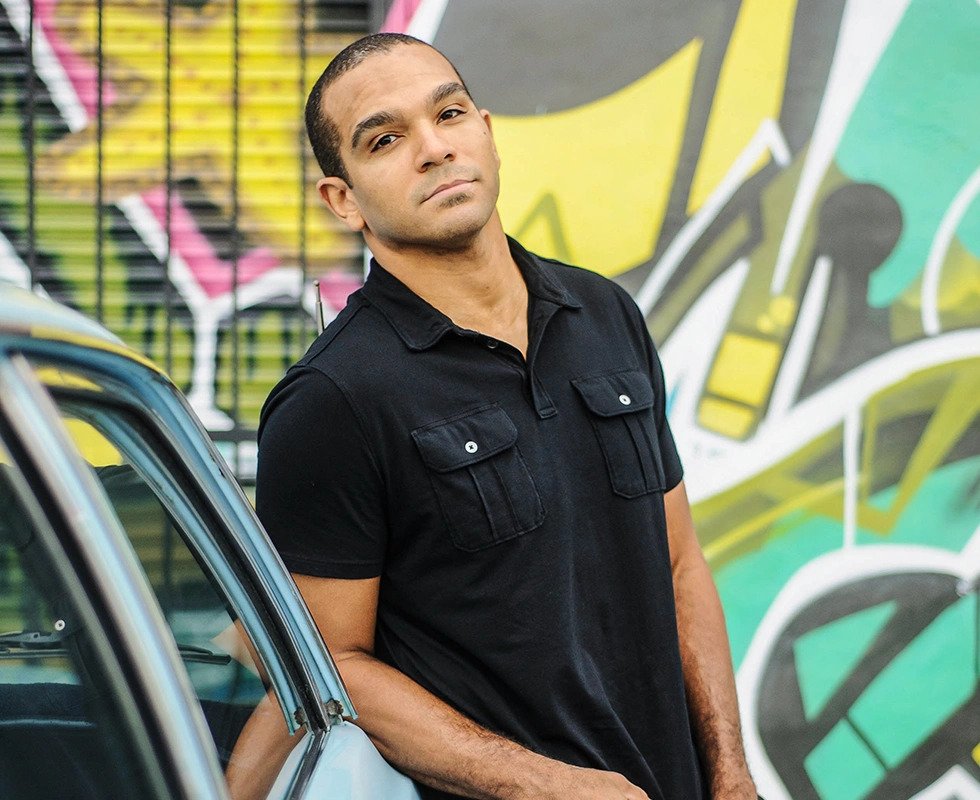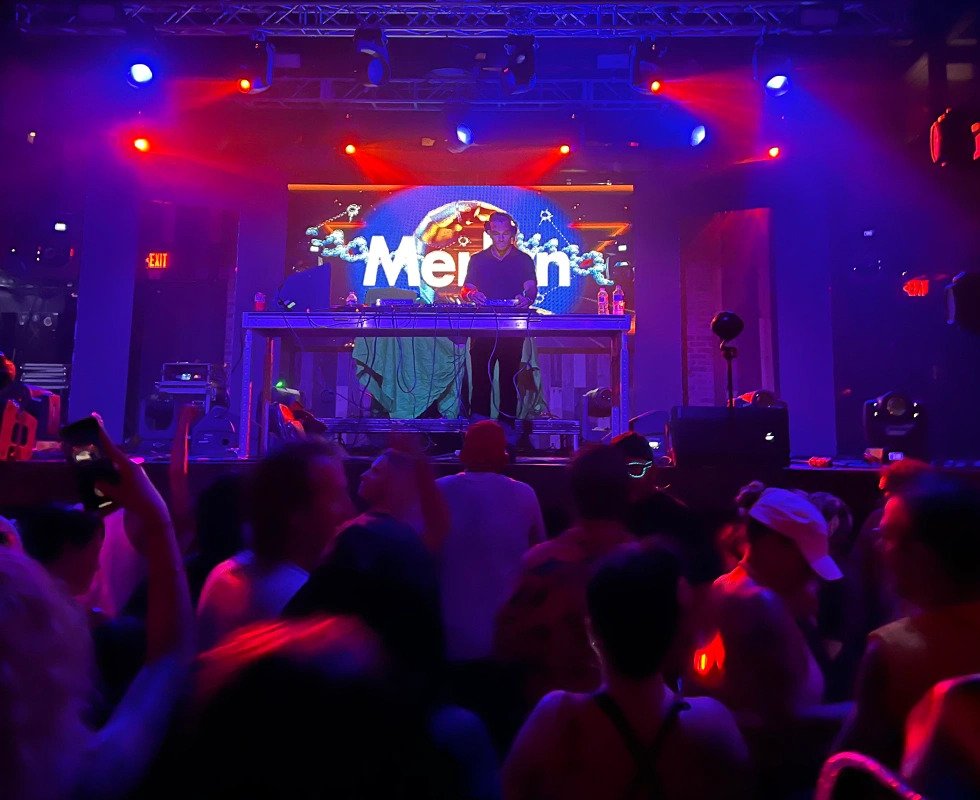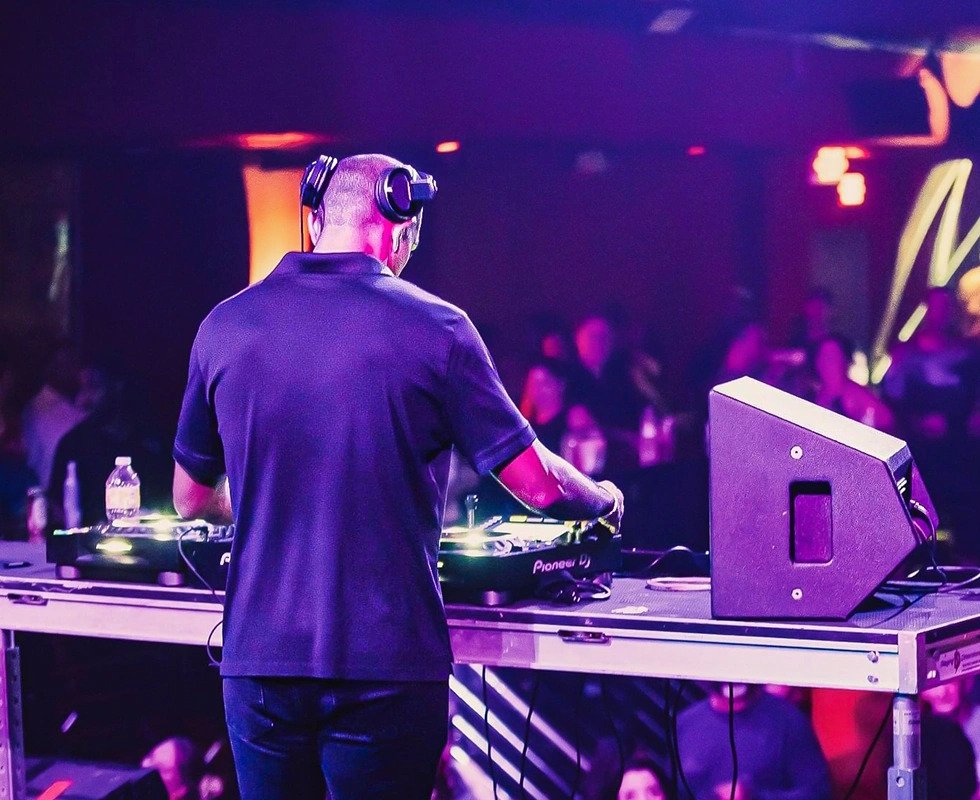Casey Stevens shares his love for the Miami music scene
Meet Casey Stevens, the U.S. Product Specialist Manager with a whole lot of love for DJing and the Miami music scene.
Growing up in Miami, dance music was in Casey’s blood and was the catalyst for his journey into music and audio production. “I knew I wanted to be involved with it in some way very early on,” he recalls. “I started DJing at 12, bought my first drum machine at 15, and the rest is history.”
The Miami music community was strong and diverse with a variety of movements cross pollinating at the same time. “As one of the centres of the Disco era, the residuals of that time continued to influence anyone who grew up there in the ‘80s, so things like synthesizers, nightclubs, and DJ culture,” Casey explains. “Disco turned to House Music, Hip Hop morphed into Miami Bass and Electro, and it all cross pollinated with the percussion of Miami’s heavy Latin influence.”

Coming from a musical family helped to shape and encourage Casey’s passion for music further. “My father played in many bands and always played guitar and bass around the house, and my uncle was the touring bass guitarist for Rod Stewart for years.”
Although, it wasn’t long before the sounds of 808 drums and Miami bass caught his attention, and it began flowing through Casey’s music under his moniker DJ Merlyn. “I make syncopated 808 flavoured music, mostly. I don't want to be that guy, but I can be hard to label. It’s usually generalized as Classic Electro, Breaks, Breakbeat, or UK Bass. I also dabble in all types of House Music.”
Largely self-taught, Casey learned a lot about DJing and music production through hands-on experience in his early days. "I didn't really have any mentors regarding DJing or music creation. I started helping with live sound at the skating rink that I DJ'd at and was exposed to my first full-sized mixing console. I began to connect the dots on the idea that my tracks didn't sound as good as the records I purchased because I needed to mix and master them!”
Miami Bass and Rap heavily inspires Casey’s productions. “If an 808 drum machine was involved it caught my attention,” he says. “Early Rick Rubin productions, Mr. Mixx from the 2 Live Crew, and DJ Magic Mike set my foundation, and this was supplemented by early Acid House and House Music. Again, Miami was an epicentre for 808 music and an incubator for House Music globally."
While a large portion of Casey’s musical influences come from the East Coast, he takes inspiration from east England too, with Depeche Mode being a dream collaboration aspiration. “In my opinion they've been creating such high-quality music that I respect immensely for decades. Plus, I think we'd do some cool stuff!”
With Miami playing a huge part in the sound of his music, the culture of the community also influenced Casey in other ways aside from genre.

“One of my favourite things about the Miami music scene is the diversity within it. If you’re looking for it and even if you’re not, no matter what your sexuality, gender, race, or any other identity classification that you choose to use for yourself, you can always find something that reflects you swimming in the same direction towards the same goal,” Casey explains. “However, I find that when it comes to music, most of those classifications become much less of a focus and the community is just that – a community based on common interests and goals revolving around the music itself.”
Casey also highlights the strong ‘do-it-yourself’ attitude Miami has about music creation. “So many people around me growing up had some form of success, be it large or small, and most of them achieved it by some form of entrepreneurial spirit. I took this to heart very early and still do. You don’t need to rent studio time – start buying your own gear and learn. Don’t wait for a label to sign you, start your own label! If you are signed to label, you can still self-release as well!”
This do-it-yourself spirit is a powerful thing for any artist to have, perhaps even more so for artists of colour in the music industry where personal drive is key to getting you to where you want to be. Some of the experiences faced by people of colour in the music industry can vary, from barriers to entry into the industry, to more subtle microaggressions, the latter being part of Casey’s experience. “In my case, I've experienced more subtle forms of racial challenges that people of colour may face for a variety of reasons and in a variety of forms – ‘You're surprisingly well spoken’, ‘Are you really black?’, etc.”
Undeterred by these obstacles Casey continues on with the spirit of DIY and Miami music at heart, and while working at Focusrite has found an environment that encourages that inclusivity.“It's really great to be able to contribute to the diversity of the Focusrite workforce. Inclusivity is an important pillar of what makes Focusrite a cool place to work.”

Casey has completed a number of projects with a lot of material available on streaming sites and available in physical formats. “There's a decent amount of material out there from me on vinyl, CD, and digital on a few different labels, including my own, Kuad Recordings. Beatport, Apple Music, Soundcloud, and the Breakbeat/Electro section of your favourite used vinyl store!” says Casey. “A quick web search should give you some hits. All the Merlyn and some of the Hydraulix stuff is mine.” Casey also plans to launch a new label, Low Industries, within the next few months in mid-to-late April with new material following a post-COVID slump.
“I've been fortunate enough that DJing has been able to take me around the world and having my music production be the support for that never ceases to amaze me when I sit back and think about it,” says Casey. “As silly as it sounds, having a BMI Publishing Check is nice reminder that I've done some stuff that someone out there thinks is cool.”
With so much of Miami’s musical makeup owing to the influence of Black culture, Black History Month presents an opportunity to celebrate not only the innovation of Black culture on music but its impact on world history, a history which is often excluded.
“Instead of the contributions of Black people existing in the historical awareness of all societies, Black History Month is, unfortunately, a very necessary and important aspect of the American observance and now international observance,” explains Casey. “It’s a powerful emphasis on the fact that Black History IS history, whether it’s American History, British History, or any other society where Black people were, are, and will be intricate parts of those stories.”
Find Casey Stevens on Instagram, Facebook and SoundCloud.

